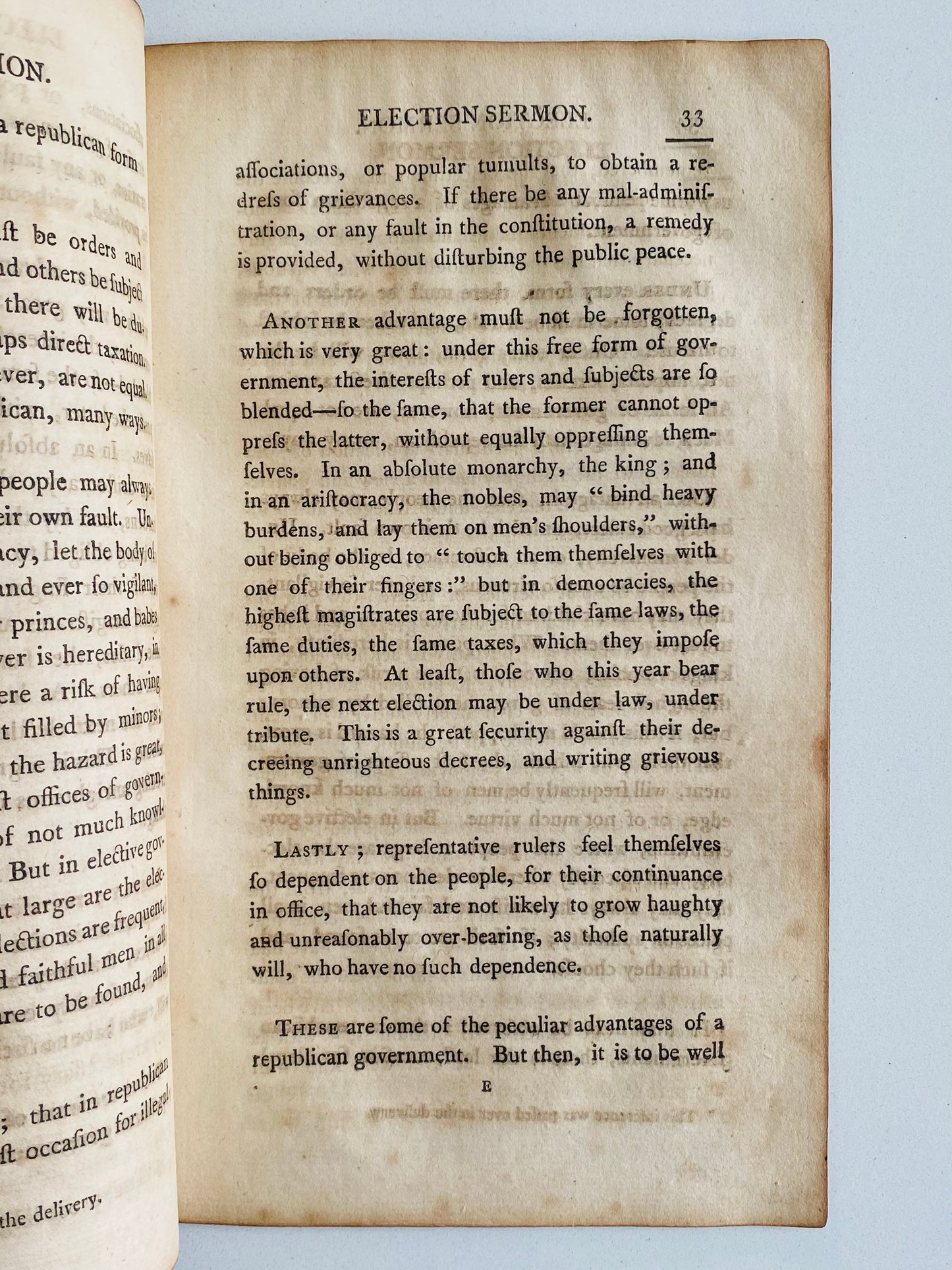Specs Fine Books
1800 JOHN SMALLEY. Evils of a Weak Government. A Federalist Manifesto.
1800 JOHN SMALLEY. Evils of a Weak Government. A Federalist Manifesto.
Couldn't load pickup availability
Rather scarce sermon that serves as virtually a Federalist manifesto for the needs of the Federal Government to have the resources an authority necessary to craft a nation and enact faithfully its foundational documents.
John Smalley. On the Evils of a Weak Government. A Srmon, Preached on the General Election at Hartford, Connecticut, May 8, 1800. Hartford. Hudson and Goodwin. 1800. 51pp.
. . . to be under a weak government, is one of the greatest calamities ever sent upon a people . . . a weak government wants energy; whether through the weakness of those by whom it is administered, or by any other means.
To mention, with a little enlargement, some of the most common causes of so great an evil, will not be foreign to the design of this anniversary.
I. That the government of a nation or state has not proper energy, may be the fault of its constitution. A form of government may be such, that, unless the administration of it be arbitrary, it will be necessarily weak.
To give rulers all that power, and reserve to the subjects all that liberty, which is best for the people, is a nice point; very difficult, I imagine, to be exactly hit, by the wisest of men, and men the most disinterested. There is danger in erring, undoubtedly, on either hand; of abridging freedom, as well as of limiting authority, more than is for the greatest general good - of adopting a constitution too despotic, as well as one too feeble. But when it is left to the people at large, what government they will be under, the error most to be apprehended, I believe, is on the side of efficiency.
The love of liberty is natural to all mankind; and even to birds, and four-footed animals, and creeping things. Of this celebrated virtue, we lost nothing by the fall of our first parents. Every one, however, depraved in other respects, wishes to be free - unboundedly free; to have none above him; to be his own subject, his own governor, his own judge. And when, for obtaining the advantages of social union, individuals give up to the community, or ot any constituted authorities, a power over their words and actions, their properties and lives; they do it with great reluctance, and as sparingly as possible.
. . .
Checks, unquestionably, there ought to be, on every department of a free government: But if such checks be laid upon rulers, that the ruled are under no check at all, harmless, indeed, will such rulers be; but altogether insignificant. These servants of the people, must have more power than the child, and the base, who proudly so call them; unless we would have them miserable gods, or ministers of God to us for good - their scriptural titles. They must have authority to punish treasonable lies against themselves, as well as slanders against the meanest of their subjects; otherwise, who will be afraid of them? Or what protection can they afford?
No copies with no copies on the market. Textually complete and good; removed from a larger sammelband with the attending residue on spine and abrasion to inner margin at the first and last leaf. Some light toning and foxing.
Share








